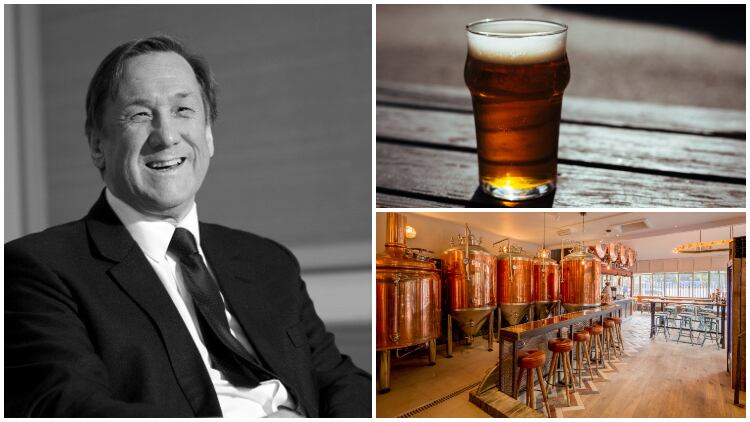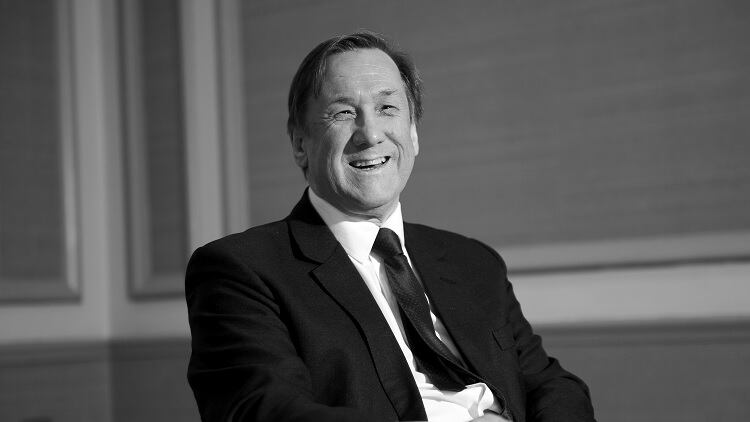Having trained at the Inland Revenue’s valuation office and previously worked at Bass Charrington, Willis has been involved with the pub trade since 1978.
As the firm approaches a landmark 200th year, Willis is set to retire from leisure property specialist Fleurets after a 34-year stint.
Reflecting on his career, Willis describes himself as “extremely fortunate” and celebrates the pub sector’s enormous diversity and the challenges it has posed.
“There are not many people that I come across who can genuinely say they've enjoyed almost every day of what is effectively a 40-year career,” he says. “I genuinely have had a fantastic career and loved all of it.
“The highlights really have been just the work – the variety of assets I've dealt with and the variety of clients I've been fortunate to have.
“If you take that matrix, the asset always being different and the client always being different, it leads to a fantastic variety of work that we deal with. Never had a boring day, never had a quiet day.”
Willis spoke to The Morning Advertiser to reflect on 40 years in the industry.
What key changes have you seen in the pub industry since 1978?
Change in pub ownership
"The pubs back in 1984, when I joined Fleurets, were, to a large degree, owned by one of the five major brewers with a number of family brewers and smaller regional brewers around,” says Willis. “The number of freehouses was extremely small.
“We started learning what pubs are worth because even back in the late '70s the brewers had started selling off some of their marginal units as freehouses. It was a case of watching what the market was doing and what prices were being paid.
"Then we had the massive evolution of ownership – the break-up of the big brewers by the monopolies commission in the Beer Orders in 1989. We had a whole raft of operating companies coming out of that all over the country.
"The whole industry changed in ownership terms and suddenly we had a lot of pubs being owned by companies that didn't brew beer.
“That then started to change as the income streams and cash flows to do with pub portfolios started to attract the private equity players in the financial markets.”
Willis states that more property-minded companies buying pubs and the distancing of the brewing process from pub operation were among the biggest changes he’s seen, although there are hints of part of the industry drifting back towards the brewery-led structure he saw earlier in his career.
“To some degree we've started to see a little swing back the other way now with smaller brewers. In order to secure their trade, in a competitive market, they are actually buying some pubs – whether that will go back to big numbers or not, I don't know.
“There's been a resurgence in real ale sales, which has probably helped, but I don't think it can go back to anything like we saw in the '80s.”
Increased and diversified pub competition
Another key change outlined by Willis is the type of pub on offer compared to when he started, highlighting that the modern descriptor could conjure a very broad range of venues.
He explains: “In the '80s, pubs were pubs – they looked like pubs and they felt like pubs.
“The radical change was Yates's Wine Lodges based in the north-west. They started growing and out of that came the high street bars that started competing with traditional pubs on the high street.
“All of a sudden we had high street bars, sometimes referred to as 'young people's venues', or 'chameleon bars' – that was a significant change.
“We also saw the rapid growth of Tim Martin’s JD Wetherspoon – who we were always up against in my earlier years at Charringtons on licensing objections, because he moved near Charrington and Allied’s big north London pubs. He's radically changed the pub industry."
Impact of drink-driving regulations
Willis also acknowledges the impact of stricter drink driving regulations that came into force in 1981.
"I was at Charringtons at that time and although drink-driving had been illegal from the late '60s, the breakthrough of breathalysers and then putting limits on breathalysers went through the brewing industry like a scythe.
“Suddenly, everybody had to start looking at all the pubs that were in semi-remote locations and it had quite an impact. I don't think it had the impact that people were expecting but we are still finding pubs in remote locations being the most vulnerable.”
Willis highlights that increased measures forced pubs to expand their offering and take food service far more seriously – something he witnessed first-hand at Bass Charrington.
“Food became a major part of where the company was going,” he says. “I was involved with the company on developing the Toby Carvery sites, Toby Inns and the Toby Hotels. The traditional pub valuer was getting involved across a much wider spectrum as were the trade managers. Everybody was learning rapidly.
“Then the major brewers started rolling out food houses and food was on the map as something to develop.
“From that, of course, pub food has developed right through to the gastropubs we see today and everything in between."
What are the key challenges facing the industry?
Willis believes a fourfold lifestyle challenge comprising the growth of home entertainment, takeaway food, healthy lifestyles and experiential leisure poses a threat to the traditional industry, and that community pubs are bearing the brunt of it.
"Where people are going out to a licensed venue for a whole evening or even a whole day, that is putting pressure on the traditional pub and particularly the small community pub, which quite often is the anchor of a village,” says Willis.
"For one who drinks in a small community village pub, and has drunk there since I was 18, it is absolutely the centre of our village.
“Unfortunately, problems with regulation and everything else now – minimum wage and pensions for staff, etc – are impacting not just on the pub industry but on all small businesses.
“You get a business that's trading at £3,000 to £5,000 a week – some of the regulation and requirements now on running a business are almost making it impossible.
“There are companies trying to provide the full backroom service to these pub operators, because, at the end of the day, their skill is being a pub licensee and not necessarily being a great or skilled businessman.
“I think how we keep some of the community pubs open is going to be one of the biggest challenges.”
However, in the face of threats to venues close to his heart, Willis doesn’t view closures as pessimistically as some.
"I don't have the negative feel that some people have about pub closures,” he says. “As I watched mines close, factories close, steelworks close, etc, it was obvious there was going to be lots and lots of pubs closed and lifestyle changes mean we don't need three, four or five pubs in a village or small community – it was always going to happen.
"The reality is that the ones that close generally are the small trading pubs. They close for a variety of reasons, either lack of trade or condition. Is there going to be a trend of stopping the closures? I can't see that happening with the new ‘super pubs’ you see being built – for every one of those, the trade is equivalent to five, six, seven or eight smaller pubs that close.”
What do you think will be the next trend to emerge in the pub industry?
Fleurets managing director Graeme Bunn believes there's going to be “polarisation” in the pub sector.
He says: “You're going to get mid-market casualties as the higher-quality food operators continue to take market share and more simplistic wet-led venues also take that business from those types of operations.”
Bunn predicts that smaller, wet-led, venues such as the ones Willis describes as community “anchors” will need to adapt and cater for their immediate communities in different ways.
"These small wet-led pubs, if the only village pub, have potential for rejuvenation as hybrid venues,” he says.
“A site might have been just a pub historically but now offers maybe a book shop, maybe a café or a deli in addition to being a pub. I saw one recently which had an estate agent's office tacked alongside.”
As reported by The Morning Advertiser Willis will retire from his role at Fleurets at the end of September 2018.




